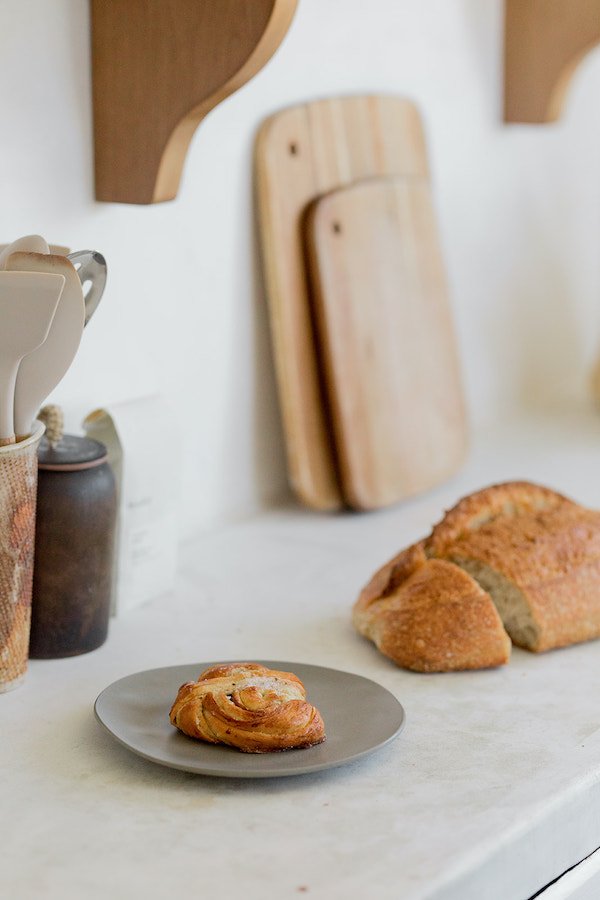
Reader Essay: Why My Weight Is Not A Reflection Of My Lifestyle
This essay was reader-submitted for our Summer Essay Series on themes of growth, aging, transformation, and renewal.
I don’t remember a time when I wasn’t shamed for the size of my body.
Family, friends, classmates, and even strangers felt it was their place to provide their opinion about my weight and offer unsolicited suggestions on how to lose it. When I was five years old, the responses to my weight painted a clear picture that I was ugly, unworthy, and unacceptable. All the negative attention to my body made me feel less than human and like I needed to change my body to earn my place in society. If I wasn’t skinny, I felt like an outcast, subhuman, and a failure.
“If I wasn’t skinny, I felt like an outcast, subhuman, and a failure.”
The summer before I started high school, puberty changed the shape of my body. I was no longer fat. I wasn’t skinny, but I wasn’t fat. I adored how my hip bones protruded through my jeans. For the first time, I felt I belonged.
After college, I married and got pregnant with my first child. My OB-GYN told me not to gain more than 20 pounds during my pregnancy. He said, ideally, I shouldn’t gain any weight since I was already overweight. Out of fear, I starved myself and went to aerobic dance classes until I went into labor. I gained 10 pounds during my pregnancy. But when my son was born, he had a few medical issues, which he overcame, but I blamed myself for being more concerned about gaining weight than my baby’s health.
My doctors drove home that my weight was due to my being inactive and overeating. At 10 years old, my pediatrician told me not to go over 100 pounds until I was in eighth grade—what could a 10-year-old do with that information? In college, I went to a nearby doctor. When my appointment was over, I quickly crossed the waiting room and was just steps from the exit door when I heard the doctor yell across the waiting room full of patients. His words felt like a knife thrown at my back: “And get that weight off!”
Shame was a cruel but commanding motivator. When a diet said to take in 1200 calories a day, I would take in 600 calories per day. When the diet program said to exercise one hour every day, I exercised for two. Although I was under-eating and over-exercising, I still wasn’t skinny, so I bought diet pills and regularly took over-the-counter diuretics and laxatives to take more weight off.
“I religiously adhered to no-fat and low-fat foods because the diet industry told us fat of any sort was the enemy. ”
And I learned how to purge. While my kids had burgers and fries, I’d order a salad with lemon juice as a dressing. I walked, rode my bike, and read hundreds of books about exercise and weight loss. I focused on cooking and eating mostly vegetables. When we’d go to a restaurant, I’d scrutinize the menu ahead of time, looking for calorie counts of potential menu items I could eat. I ordered sandwiches wrapped in lettuce instead of bread. If I got a baked potato, I’d ask for no butter, cheese, or sour cream to reduce the calories from fat. I religiously adhered to no-fat and low-fat foods because the diet industry told us fat of any sort was the enemy.
By the time I was 50, I had mastered yo-yo dieting. Despite a mostly healthy diet, my body looked like one most would think had been sitting around watching TV and eating chips and cookies. Although my family’s diet was primarily healthy, I knew by looking at my body that most would not believe me if I told them we never had junk food at home.
One year, when tornadoes knocked out power to our house for over a week while we were on vacation, a friend went to clean out our refrigerator before the food rotted from lack of refrigeration. When I returned, I thanked my friend for saving us from a disgusting mess. She replied, “I was surprised! You really do eat healthy! I thought I’d find at least some ice cream in your house, but there was none.” It was validating to hear, but to the outside world, I still was unacceptably fat.
When I turned 60, I once again was able to lose weight. It first came off when I single-handedly landscaped our new home’s front and back yards, hauling 30, 40, and 50-pound native stones to line the beds, lifting sacks of mulch, and digging out the flower beds. With that bit of weight loss, I was inspired to start tracking my calories and ride my bike more. I was happier and more confident, and it felt good to be in control. Yet it was hard to dismiss that nagging voice reminding me I could just as quickly gain the weight back.
“My motivation is my health, but shame still influences how I feel about my body and why I want to be thinner.”
Today, I keep striving to lose weight. My motivation is my health, but shame still influences how I feel about my body and why I want to be thinner. Fat bias exists, especially for women. And too many in the medical field still believe being overweight or obese means one is unhealthy.
I’d love for others to know that few overweight people are sedentary, eat junk food while watching TV, and are clueless about healthy lifestyles. Some of us eat a healthy diet and get regular, meaningful exercise. I adore cycling, hiking, and kayaking. I’m a total nature nerd in need of identifying every plant, tree, snake, bird, and bug. These activities allow me to learn about and experience nature.
I also belong to a Facebook group for women triathletes in the Athena class who are 160+ lbs. Many of these women complete Ironman triathlons. Every day, they prove that being overweight does not equal being unhealthy.
“We don’t need advice on losing weight or being told about the best new exercise fad. ”
We don’t need advice on losing weight or being told about the best new exercise fad. Some of us are just 64-year-olds who eat vegetarian meals and go gravel cycling and kayaking several times a week.
What we do need is respect and understanding. Fat bias contributes to the shaming, blaming, and injustices many of us endure. Some of us trying to lose weight get down on ourselves when shamed, and it’s hard to stay motivated. And many of us who are not-so-thin love our healthy, strong bodies just as they are! Our bodies don’t tell you how we live our lives, so don’t assume we are unhealthy, unhappy, and inactive.
Recently, I was cycling with a friend, wearing my favorite biking t-shirt with Cycologist blazed across the front. Despite being cute and comfy, I openly admitted my hesitation with my shirt.
“I just know if I go out in public with this shirt on, others will read my shirt, then look at me, and sarcastically think, ‘Yeah, I bet she rides a bike!’” I said.
My friend simply replied: “I wouldn’t care what others say.”
I say many of us do live a healthy lifestyle, and some of us do ride a bike.
Celi Trépanier, M.Ed. is the author of Educating Your Gifted Child and an editor for Perspectives on Giftedness. Celi writes for her popular website, Crushing Tall Poppies and is an advisor for The G Word film.




